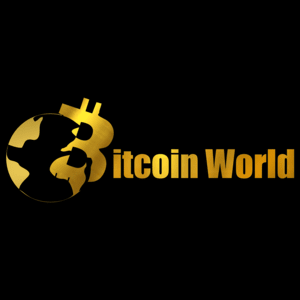US Crypto Regulation: Treasury Holds Crucial Roundtables on Future Policy
5 min read
Big news is brewing in the world of US Crypto Regulation ! The U.S. Department of the Treasury is set to host a series of private roundtables next week, bringing together key players from the cryptocurrency industry. This isn’t just a casual chat; these discussions are poised to delve into critical areas that will likely shape the future landscape for digital assets in America. Reported initially by Token Relations co-founder Jacquelyn Melinek and reposted by Crypto in America host Eleanor Terrett, these meetings signal a significant step towards more direct engagement between regulators and the innovators building the decentralized future. Why is the Treasury Crypto Roundtable So Important? When the Treasury Crypto division decides to sit down with industry experts, everyone in the crypto space pays attention. These aren’t public hearings, but private, focused discussions aimed at fostering a deeper understanding and potentially paving the way for clearer guidelines or regulations. The fact that the Treasury is initiating these talks underscores the growing importance and complexity of the crypto ecosystem in the national and global financial system. These roundtables provide a crucial platform for: Direct Communication: Industry leaders can share their perspectives, challenges, and innovations directly with policymakers. Information Gathering: The Treasury can gain firsthand insights into how decentralized technologies actually work and are being used. Identifying Key Issues: Discussions will pinpoint the most pressing concerns from both the regulatory and industry standpoints. The outcomes of such meetings, while not immediately resulting in policy, often inform future regulatory approaches, legislative proposals, and enforcement priorities. For anyone involved in or watching the crypto space, understanding the topics on the agenda is key. Exploring the Core Topics: Decentralized Finance, Banking, and Cybersecurity The reports indicate the discussions will center around three major pillars: Decentralized Finance (DeFi) , Banking, and Cybersecurity. These areas represent some of the most dynamic, yet challenging, aspects of the crypto world from a regulatory perspective. What’s on the Table for Decentralized Finance (DeFi)? Decentralized Finance (DeFi) has exploded in popularity, offering services like lending, borrowing, and trading without traditional intermediaries. However, its decentralized nature also presents unique regulatory puzzles. Discussions around DeFi will likely cover: Identifying Responsible Parties: How do you regulate protocols that are governed by code or decentralized autonomous organizations (DAOs)? Consumer Protection: How can users be protected from risks like smart contract bugs, rug pulls, and impermanent loss in a permissionless environment? Illicit Finance Risks: How can DeFi platforms mitigate risks associated with money laundering, terrorist financing, and sanctions evasion? Market Integrity: How do you ensure fair and transparent markets when activities occur across numerous protocols globally? Industry participants will likely advocate for approaches that foster innovation while addressing these risks, perhaps proposing industry best practices or limited regulatory touchpoints that don’t stifle growth. Navigating the Intersection of Crypto Banking The relationship between traditional banking and crypto is evolving rapidly. More banks are exploring offering crypto services, while crypto native firms are seeking access to banking infrastructure. The term Crypto Banking encompasses various interactions, from banks holding crypto assets to stablecoin reserves and payments. Key points in these discussions might include: Stablecoin Regulation: How should stablecoins, particularly large-scale ones, be regulated to ensure stability and protect users? Are they deposits, securities, or something else? Bank Exposure to Crypto: What are the prudential risks for banks engaging with crypto assets? How should capital and liquidity requirements be adjusted? On- and Off-Ramps: Ensuring clear, compliant pathways for converting between fiat and crypto is crucial for market functioning and preventing illicit activity. Custody of Digital Assets: What are the standards and requirements for financial institutions holding crypto on behalf of clients? Achieving clarity in Crypto Banking is essential for both traditional finance seeking to enter the space and crypto companies needing reliable financial services. Strengthening Cybersecurity in the Digital Asset Space Cybersecurity is not unique to crypto, but the immutable nature of blockchain transactions and the value stored in digital wallets make robust security paramount. High-profile hacks and exploits underscore the need for constant vigilance. Treasury’s focus on cybersecurity likely involves: Infrastructure Security: Protecting exchanges, custodians, and other critical market infrastructure from attacks. Wallet Security: Discussing best practices for securing private keys and protecting user funds. Threat Intelligence Sharing: How can government and industry collaborate to identify and mitigate emerging cyber threats? Incident Response: Planning for how to respond effectively when security breaches occur. Enhancing cybersecurity is a shared goal that benefits users, businesses, and the stability of the financial system as a whole. These discussions are vital for building trust and resilience in the crypto ecosystem. The Broader Context of US Crypto Policy These roundtables fit into a larger picture of evolving Crypto Policy in the United States. Various government agencies, including the Treasury, the Federal Reserve, the SEC, and the CFTC, are grappling with how to appropriately oversee this rapidly developing sector. Executive Orders have called for a coordinated approach, and reports from different agencies have outlined potential risks and recommendations. The Treasury’s role is particularly significant given its mandate covering financial stability, sanctions, and combating financial crime. Their engagement with the industry suggests a move towards more informed and potentially more tailored regulatory actions rather than broad, sweeping mandates. For industry participants, these meetings are an opportunity to educate policymakers and advocate for frameworks that support responsible innovation. For regulators, they are a chance to understand the practical implications of potential rules and identify areas where clarity is most needed. What Could Be the Potential Outcomes? While these are private, non-policy-making discussions, they are foundational. Insights gained here could influence: Future Guidance: The Treasury or other agencies might issue clarifying guidance on existing regulations as they apply to crypto. Legislative Proposals: The information could inform recommendations to Congress for new laws specifically addressing crypto, DeFi, or stablecoins. Enforcement Priorities: A better understanding of the landscape helps regulators identify areas of highest risk requiring enforcement attention. International Collaboration: The U.S. approach often influences global standards, making these domestic discussions relevant internationally. The path forward for US Crypto Regulation is still being charted, and these Treasury roundtables are undoubtedly a crucial step in that process. In Conclusion: A Step Towards Clarity? The U.S. Treasury’s decision to host private roundtables with the crypto industry on topics like Decentralized Finance , Crypto Banking , and cybersecurity is a positive sign of increased engagement. It indicates a recognition of the complexity and importance of the digital asset space and a willingness to seek direct input from those building within it. While the immediate impact remains to be seen, these discussions are vital for fostering a more informed approach to Crypto Policy . Industry participants have a chance to educate, and regulators have an opportunity to gain clarity, potentially paving the way for more effective and balanced regulation in the future. To learn more about the latest crypto market trends and US Crypto Regulation developments, explore our article on key developments shaping crypto policy and institutional adoption.

Source: Bitcoin World



